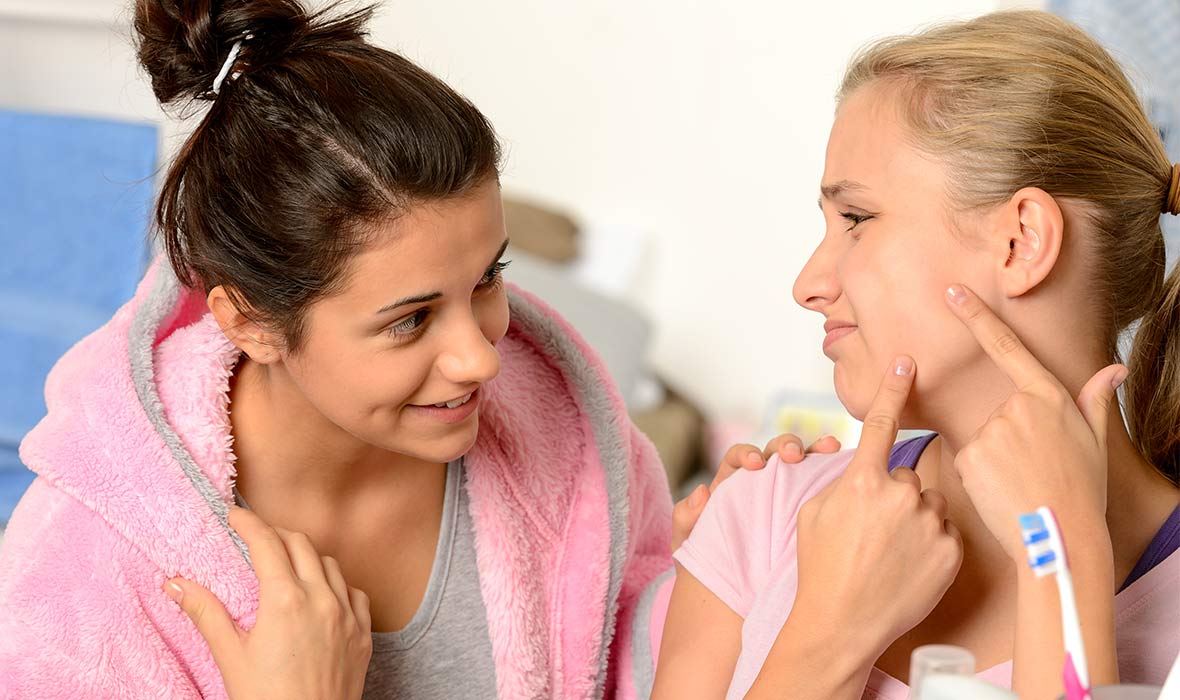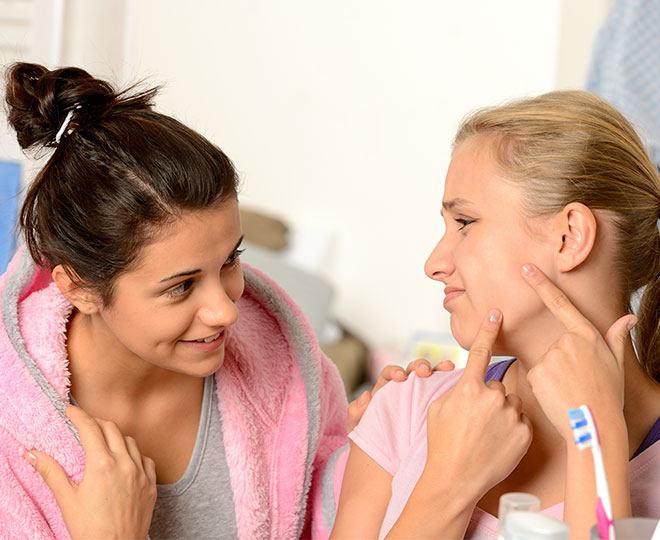Acne is probably one of the last things you want, so when you see somebody struggling with acne, you might even be a bit afraid to get too close. You may wonder, "Is acne contagious?" Or, perhaps you’re experiencing a breakout of your own and you’re curious where it came from. You’re about to find out the answer to your question.
How people get acne
Acne is caused when excess oil (sebum) on your skin mixes with dead skin cells and other debris to clog your pores, resulting in whiteheads and blackheads. Sometimes, acne-causing bacteria can then infiltrate the clogged pore to give your acne the characteristic redness by irritating the lining of the pore.
Is acne contagious?
Thankfully, acne is not a contagious skin issue. Acne-causing bacteria thrive in oxygen-deprived environments (like inside a clogged pore). They are rendered mostly harmless once on the surface of your skin when they are exposed to oxygen-rich environments.
Hugging or even kissing someone with acne won’t pass it along to you. The only increased risk of sharing something like a towel with someone experiencing acne is that if they’ve already gotten dirt and grime on the towel, it may no longer be clean for you. And with more dirt on the surface of your skin, the more likely your skin’s natural oils will mix with the debris to clog pores. So, does acne spread from person to person? No, but you should still be careful to practice simple hygiene techniques like wiping off with a clean towel. And, if you’re in a relationship, you’ll want to make sure that you both practice good skin hygiene habits.
Almost everyone will experience acne in some form or another at some point in their lives. If your previously spotless face breaks out with acne a week or so after spending time with someone experiencing pimples, it’s just a coincidence! Or, perhaps you both worked out without washing your face after.
Can acne spread?
If pimples aren’t contagious, why do pimples spread on your face, especially after you pop them? Acne occurs between your pores and oil glands, and multiple pores may be connected to each oil gland. Popping a pimple could lead to debris moving underneath your skin to clog other pores in the area. We recommend only allowing a dermatologist or professional aesthetician to pop your pimples in order to avoid more acne, scarring and irritation.
How to treat acne
Acne occurs because of interactions between your skin’s natural oil, dirt on the surface of your skin, a build-up of dead skin cells and often acne-causing bacteria as well. Because acne is the result of several distinct elements on your skin interacting, finding a comprehensive treatment is important. The ProactivMD® 3-Piece System includes Adapalene Gel, which helps your skin get clear — and stay clear.
The Ultra-Gentle Cleanser helps wash away dirt, oil and debris to leave your skin feeling refreshed. The Adapalene Gel is a topical retinoid that packs a prescription-strength punch, (no prescription required,) attacking breakouts on a cellular level to help restore a more even skin tone and texture. Finally, the Ultra-Hydrating Moisturizer offers a soothing layer of hydration to help protect your skin. Because your skin produces extra oil to hydrate itself in response to dryness, keeping your skin’s moisture barrier intact with products like the Ultra-Hydrating Moisturizer is the most fundamental way to keep away excess oil.
The bottom line
Are pimples contagious? Nope! But most of us are still going to have to deal with them in one way or another. Make taking care of your acne a breeze with the acne treatment system that’s right for you, and give your skin the unique care it deserves.






